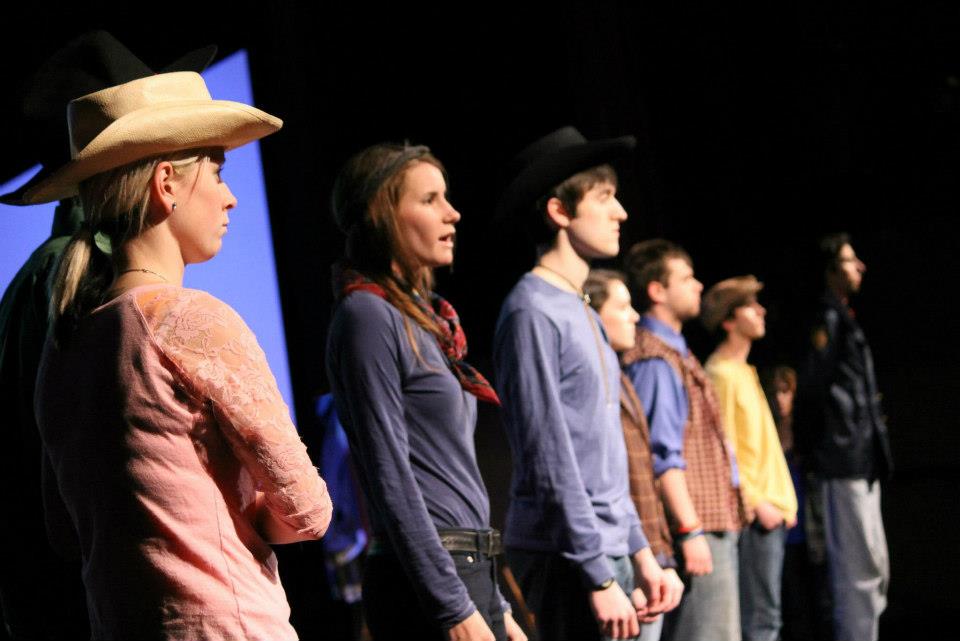Courage is easily the greatest of all human virtues, although it is rarer than reason, honor or pride. Courage is the ability to advocate for oneself or others in the face of overbearing adversity, despite the friction it may cause.
It is also an integral theme within The Laramie Project, a production recently put on by our Anselmian Abbey Players. This play, from accounts, diary entries and interviews conducted by Moises Kaufman and his Tectonic Theater Project, details the impact that the assault and ultimate death of a young gay man had, not only on the community of Laramie, Wyoming, but of the members of societies all across the United States, as well as the world.
Although Matthew Shepard’s homosexuality is fundamental to this story, the lasting message is tolerance, for all people, no matter their race, gender, sexual orientation, or any other characteristics.
Shepard, who was brutally beaten by two boys, is not a victim merely of the intolerance of his two attackers, but of a culture that allows such hatred to grow within its citizens. Regardless of one’s view of homosexuality, Shepard was as much of a son, friend, student, and most importantly, human as anyone else, therefore he did not deserve his fate.
Within the Abbey Player’s production, Matthew Shepard and his supporters were done a great justice. The story of Shepard and his town that rocketed into the eye of a media hurricane are dealt with in a genuine manner—each character, or rather, each person, no matter their role, was played with genuine honesty and care.
One of the play’s greatest achievements was not in its production, its acting, or any other facet of performance – though all were exemplary. It was that within such thought-provoking works, the viewers are drawn to reflect on their own values.
Luckily, following the Thursday performance, three members of the Core Council for Gay and Lesbian Students held a panel discussion with Professors McDonald, Carter-Spalding and Banach.
The panel was spurred by questions from the audience, and which could have been answered by the members of the panel or cast. A number of the questions revolved around a particular question: if Matthew Shepard had not been gay, would his assault have caused as much press attention?
Although this may have contributed to the media storm that followed, it can be said that reaction of the citizens of Laramie are more important than the people of the outside world. It was the people of Laramie who had to deal with losing a son, friend, or student, and his orientation should not have influenced the support or opposition of any group.
The matter of Shepard’s assault should not be thought of as solely a “gay” issue – it’s truly an issue of human rights, of the freedom to live without fear of retribution regardless of race, gender, sex, orientation, nationality, social status, disability, or any other characteristic.
The courage to truly live first starts with the absence of fear – and in a world as good as this, fear should not be influential.


